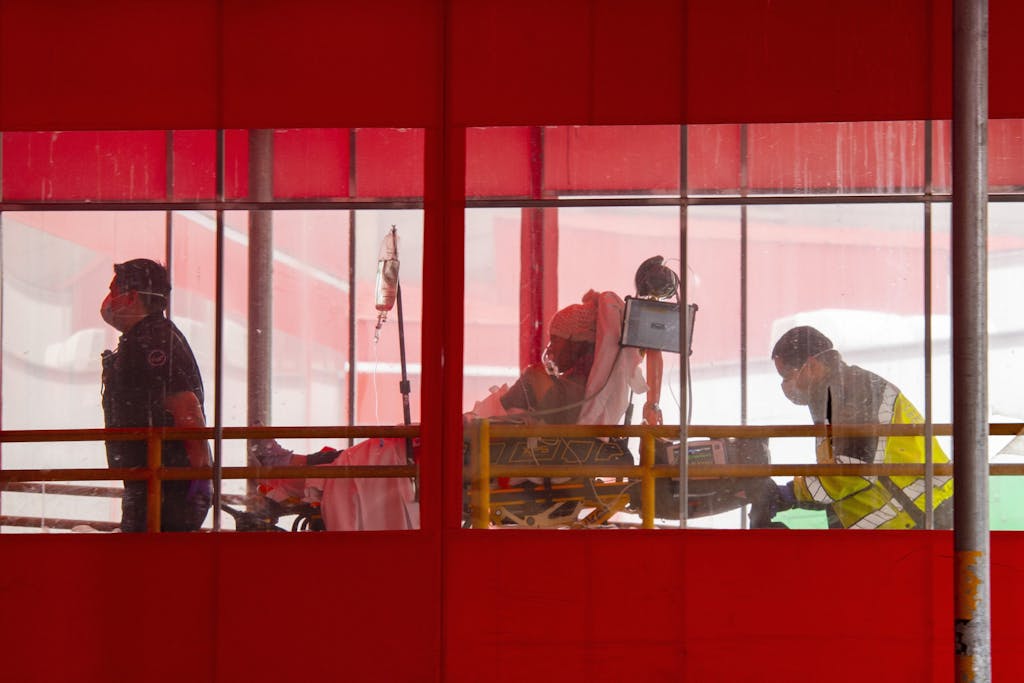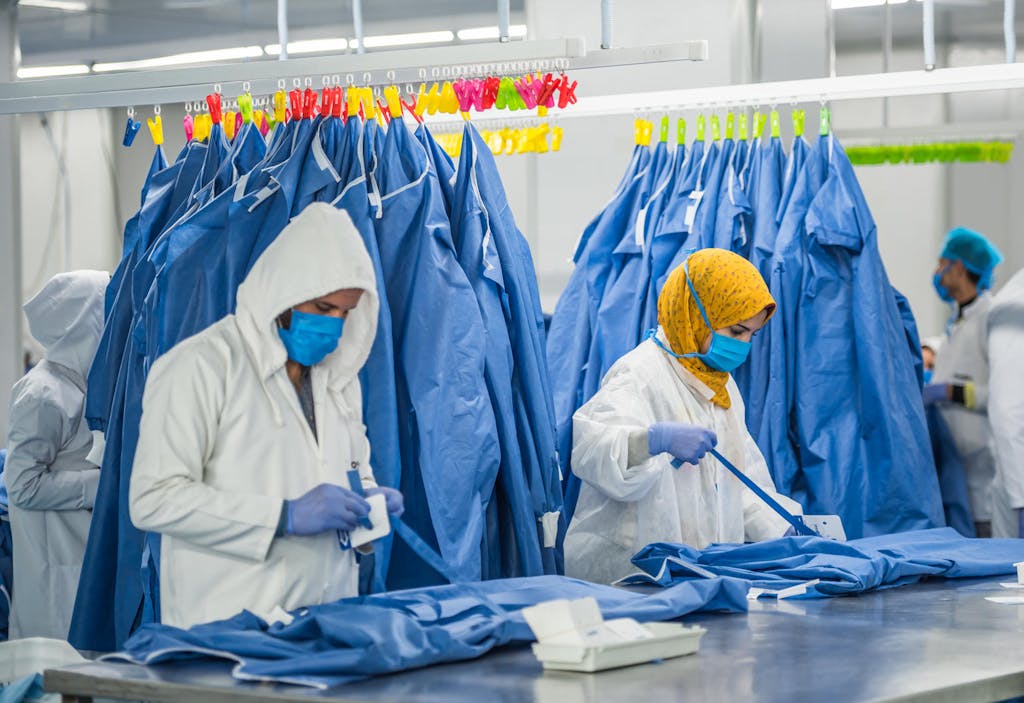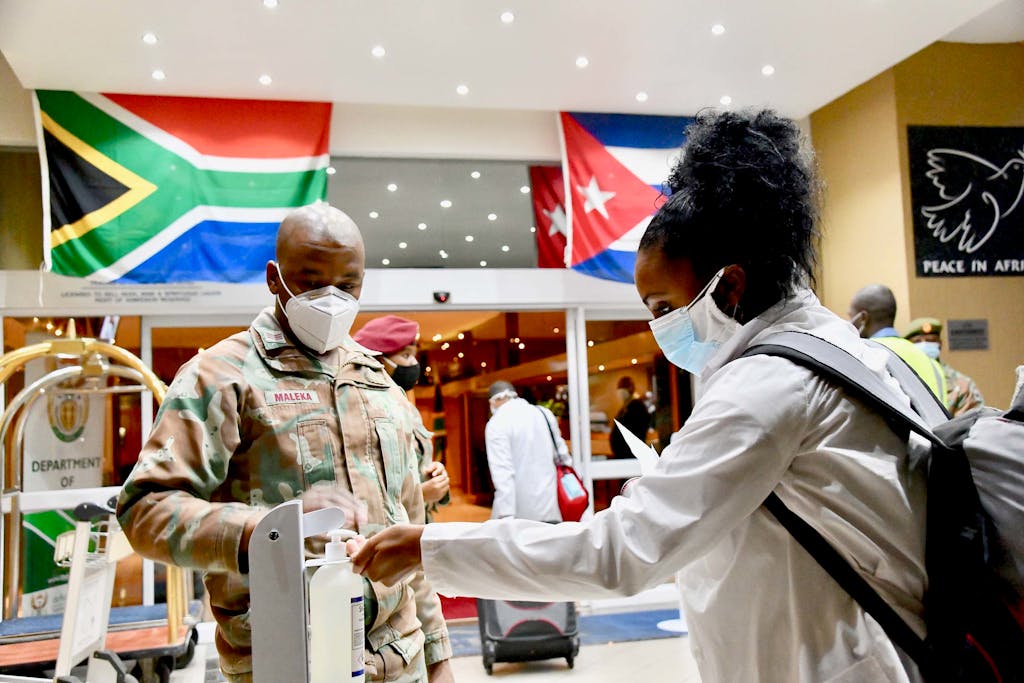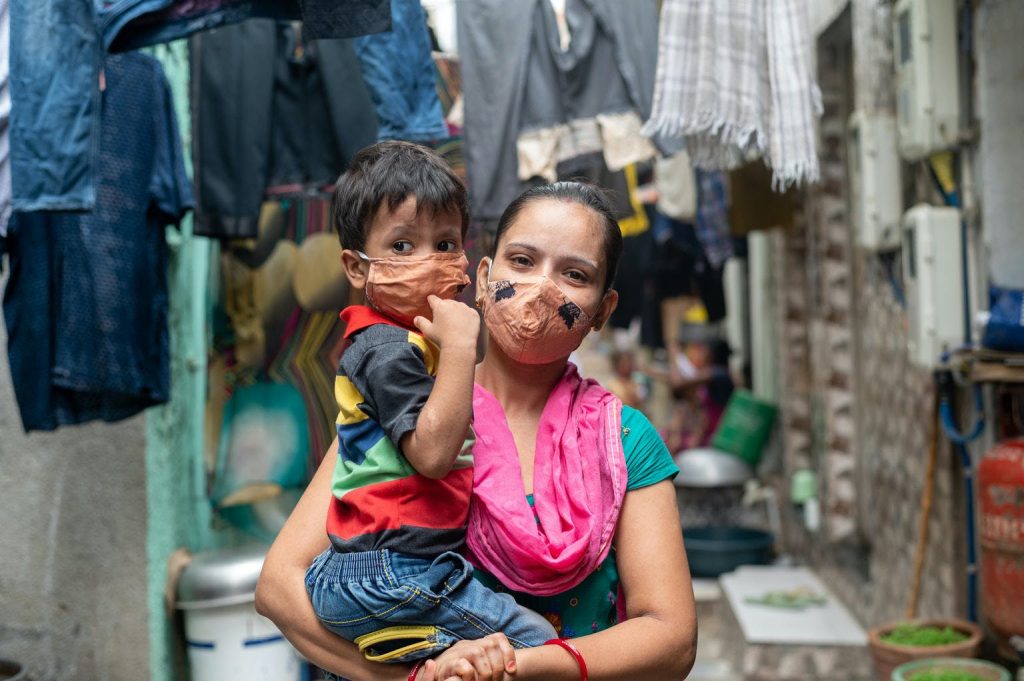COVID-19 took the world unexpectedly, forcing even in all probability the most ready nations to reexamine their means to answer to pandemic threats. as a end result of the most important waves of COVID-19 had been sweeping the globe, world leaders gathered for the World well being meeting in might of final 12 months. It was there, on the annual meeting of the world’s well being leaders, that sweeping critiques had been referred to as for — of every part from world well being safety insurance coverage policies and methods to the position of the World well being group and the efficiency of its Emergencies Programme notably. forward of the World well being meeting this 12 months, three stories had been issued to decide gaps inside the worldwide pandemic response and to suggest collective options to shore up preparedness for the following world well being risk.

After a world pandemic shut down economies and upended lives, the world needed options — and rightfully so. world leaders demanded a proof to the questions haunting us all, chief amongst them: How did COVID-19 unfold so quick? And what should fluctuate to make constructive that an outbreak of this scale by no means occurs as quickly as extra?
all through the 2020 World well being meeting (WHA), nations referred to as for the institution of an unbiased evaluation physique to take a take a look on the worldwide pandemic response, work out what occurred when, and decide how the worldwide response might even be improved. consequently, WHO Director-regular Dr. Tedros Adhanom Ghebreyesus commissioned the creation of the unbiased Panel for Pandemic Preparedness and Response. Co-chaired by former Liberian President Ellen Johnson Sirleaf and former New Zealand Prime Minister Helen Clark, the unbiased Panel was tasked with studying classes from the previous and offering a road map to bolster world institutions to allow them to elevated reply to pandemic threats.
As a ingredient of the pandemic response evaluation, nations additionally referred to as for evaluation of what’s typically referred to as the worldwide well being guidelines (IHRs) — the worldwide, legally binding framework that defines nations’ rights and obligations in dealing with public well being emergencies which have the potential to cross borders. In response, the IHR evaluation Committee was established, starting its work in September 2020 to ponder and advocate reforms to the IHRs that would facilitate a swifter, extra sensible world response.
Aligning itself with the decision, the unbiased Oversight and Advisory Committee (IOAC) of the World well being group (WHO), an unbiased committee original in 2016 to oversee the progress of WHO’s Emergencies Programme, focused its evaluation on the efficiency of the Emergency Programme’s position in WHO’s COVID-19 response. The Committee presently launched its annual evaluation, outlining recommended reforms.
requires Sweeping Change
regardless of the numerous scope of these critiques, every acknowledged that important modifications to world well being methods and insurance coverage policies should be made to elevated put together the world for the following pandemic. under are some key findings every evaluation found and why they matter.
ideas from the unbiased Panel
The unbiased Panel found that the worldwide neighborhood’s pandemic preparedness and response capabilities are wholly insufficient and underfunded, with massive gaps on the worldwide and nationwide ranges. The unbiased Panel, which has the broadest mandate of the three evaluation our bodies, referred to as for a sweeping transformation of the pandemic preparedness panorama. launched on might 12, 2021, numerous the ideas focused on growing world and nationwide management on pandemic preparedness and response. To strengthen world capacities, amongst completely different issues, the unbiased Panel actually useful institution of a world well being Threats Council which will implement ideas round preparedness and response, as properly as to allocate needed funding. For funding, the unbiased Panel actually useful a mannequin new worldwide Pandemic Financing Facility to provoke sustained funding for preparedness and the aptitude to quickly mobilize as a lot as $one hundred billion all through a pandemic if needed.

The unbiased Panel actually useful that WHO’s position be strengthened, noting it “has an indispensable management position inside the worldwide system for prevention, preparedness and response to a world well being emergency reminiscent of a pandemic.” To allow WHO to behave as swiftly as potential, the unbiased Panel additionally recommended that WHO set up a world surveillance system with the authority to publish information about an outbreak with out requiring approval from Member States and be assured entry to evaluation outbreaks of concern, which has been a critical level of rivalry with some nations all through this pandemic.
on the nationwide diploma, the unbiased Panel famous that public adherence to public well being measures and strains on well being amenities had been key challenges over the previous 12 months. to deal with these factors, the unbiased Panel actually useful the appointment of nationwide pandemic coordinators by Heads of State, elevated investments in nationwide well being methods, and better roles of communities as key actors in pandemic preparedness and response.
to assemble assist for implementing its ideas, the unbiased Panel suggested holding a Heads of State particular UN summit in September 2021.
ideas from the IHR evaluation Committee
The IHR evaluation Committee found that the IHRs have an important position in well being emergencies however are restricted as a end result of nations typically do not persistently adhere to them. a ingredient of the worldwide well being guidelines, a legally binding worldwide instrument that spells out the obligations and tasks of each governments and WHO inside the context of preparedness and response, consists of the power of the WHO Director-regular to name for an unbiased evaluation of how the IHRs carry out. This has been performed 4 occasions inside the ten years since IHRs acquired here into power. Since early September, the IHR evaluation Committee has labored to decide gaps inside the functioning of the IHRs and methods to enhance them. In its remaining report, the 20-particular person evaluation Committee supplied forty ideas that referred to as for enhancements to the IHRs to allow WHO and its Member States to elevated implement and adjust to the guidelines. The committee additionally referred to as for institution of a World Alert and Response discover (WARN) system to assist nations reply to outbreaks in exact time and forestall outbreaks from spreading and altering into world emergencies. The committee additionally famous that WHO ought to work with nations to decide a common periodic evaluation, considerably like a preparedness and response report card, to routinely assess nations’ compliance with the IHRs and collaboratively guarantee a full-of-authorities method to outbreak response.
ideas from the unbiased Oversight and Advisory Committee
Upon ending its evaluation, the IOAC found that the World well being group’s Emergencies Programme had made important enhancements and capabilities properly however that it is inadequately resourced to fulfill the calls for of responding to a full lot of well being emergencies world large on the identical time that a pandemic is occurring. The IOAC made pretty simply a few ideas for reforms to WHO’s Emergencies Programme. recommended reforms included calling on nations to make constructive that that who’s sufficiently empowered to maintain out its obligations under the IHRs. furthermore, the committee actually useful that WHO incorporate social scientists and gender equality specialists into the Emergencies Programme to foster a extra holistic method to dealing with world well being threats. lastly, the committee actually useful that governments enhance their funding for the WHO Emergencies Programme to make constructive that that it is in a place to answer to a full lot of simultaneous well being threats, huge and small, occurring at any second world large.
making ready for the following Pandemic
All three stories found a necessity for a extreme-diploma, cohesive, resilient, and sustainable system for pandemic preparedness and response, with assist from the very most interesting ranges nationally and globally. particularly, they famous the want for elevated and sustainable financing so WHO might even be extra readily in a place to fulfill the world’s well being wants. The stories welcomed the exploration of a world treaty to deal with important gaps and the institution of accountability mechanisms to make constructive that that nations adhere to their preparedness and response obligations in an effort to forestall future pandemics. lastly, the inclusion of a full-of-society method, a extra full method of heading off pandemics earlier than they start, will possible be very important to stopping future world well being threats.

whereas every evaluation laid out many ideas for reform for Member States, WHO, and the worldwide neighborhood, simply a few most important through strains emerged from the stories which is in a place to undoubtedly function prominently in discussions all through the upcoming seventy 4th WHA.
The worldwide neighborhood is now equipped with important, extreme-diploma, and actionable ideas to take to the World well being meeting. What in the end comes of these ideas is as a lot as Member States to take forward all through WHA and past. whereas a quantity of the ideas have already gained traction, others will possible proceed to stir debate properly previous the meeting and into the G7 and G20 summits and UN regular meeting later this 12 months. One factor is evident: The time to heed these requires change is now. consultants emphasize that the following pandemic isn’t a question of if, however a matter of when. These stories clarify that we should rework the current world system if we want to be elevated ready for the following pandemic.
picture: Vijay Panjwani/ UNICEF

